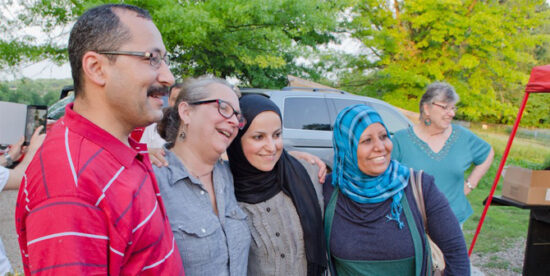
Our world faces serious challenges today, some of which seem unresolvable. Establishing ties with people from around the world is undoubtedly one of the most powerful tools we have to address the problems that confront us all. When individuals in the U.S. develop ties with the citizens in other countries, they inspire thinking that transcends the boundaries of their daily lives. We see it every day at Global Ties U.S. Consider the Baltimore-based entrepreneurs at the Taharka Brothers, who worked with farmers in Haiti to import Haitian cocoa for their ice cream business; or Dr. Aaron Shirley, the Mississippi doctor who improved healthcare access for the needy in his state’s Delta region by using a model developed in Iran.
When individuals in the U.S. develop ties with the citizens in other countries, they inspire thinking that transcends the boundaries of their daily lives.
The information-sharing and relationship-building that help people come together to tackle global challenges no longer happens solely through formal diplomatic relations conducted between governments. More and more, diplomacy takes place not only in Washington, DC, but in communities and regions throughout the United States. Ordinary citizens look around their community and understand: diplomacy begins here! U.S. Secretary of State John Kerry said it best when he remarked, “there is no longer anything foreign about foreign policy.”
In this new and shifting landscape, the task of bringing global engagement to local communities falls on us. We must ensure international exchange participants reflect a diverse range of experiences, perspectives, and backgrounds.
In the coming months, Global Ties U.S. and our members, in partnership with the Department of State, will host a series of summits to take place throughout the United States. Participants will include business leaders, government officials, and representatives from NGOs. By working together, we will foster connections within the international exchange community and highlight the critical role that public and citizen diplomacy programs play in building a more peaceful and prosperous world.
There is no longer anything foreign about foreign policy.
Ensuring professional development opportunities for the international visitor community will be a key feature of our forthcoming summits. All who play a role in exchange programs will receive the training they need that will allow them to ramp-up their invaluable work. Participants will enjoy opportunities to improve their understanding of American public diplomacy and foreign policy, while examining how international exchange programs improve our relationship with the rest of the world.
The 2014/15 Diplomacy Begins Here regional summits will take place in eight U.S. cities. The foreign policy topics and themes to be emphasized will vary, depending on each summit site. Professionals and volunteers are being invited to participate, and discover how they can do more to make the international exchange experience better for everyone involved. For additional information on how you can get involved, go to http://bitly.com/diplomacybeginshere.
